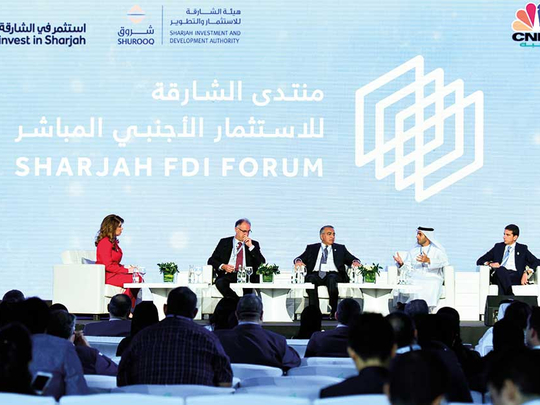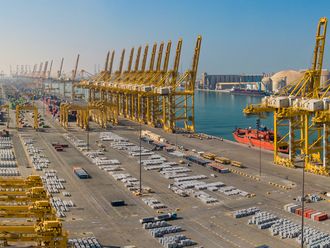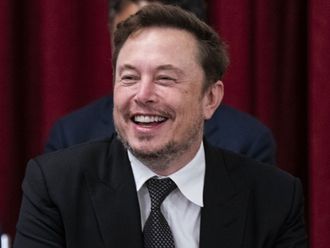
Dubai: International Finance Corporation (IFC), a member of the World Bank, has invested $6 billion in the region, playing an all-round role in financing, advising, among others, and a top official said its role is important as ever as foreign investors become averse.
IFC, which is the largest global development institution focused on the private sector in developing countries, has invested billions of dollars directly or indirectly through private equity firms and venture capitalist in 400 firms.
“As objectives change and as situation of countries changes, as foreign investors feels less comfortable with certain countries depending on their macro environment, we have a higher risk appetite. So investors are leaving the town, we are going in. So it’s a counter cyclical role, we play it quite well,” Deepak Khanna, Chief Investment Officer at IFC, told Gulf News on the sidelines of the Sharjah FDI Forum.
- Deepak C. Khanna, IFC’s chief investment officer
Last year, the IFC invested $1.7 billion to support companies in the region, and that was quite high, and above our own internal targets.
The IFC is working on themes like climate change through renewable energy like hydro, solar, wind projects in Pakistan, and a micro-finance project elsewhere.
“Other than providing skills and entrepreneurship, access to finance has been key aspect of our work, where we work with banks to provide funding to smaller companies. We work with the governments to improve the operating environment,” Khanna said.
Constrained finances
The IFC is also providing advice to governments as finances become more limited due to lower prices of oil, from where the Gulf countries derive majority of their revenues.
Oil prices have tumbled from a high of $130 per barrel a few years ago, to around $55 per barrel now, negatively impacting government revenues, which have taken back many of the subsidies on electricity, petroleum, gas among other things.
“We also provide a lot of advice to governments. As governments finances are becoming more constrained due to lower oil prices. It’s becoming more critical to attract private financing. We are working with the governments to help them structure PPPs [public, private partnerships] and attract other investments,” Khanna said.
“The business of governments is not business. Unfortunately in the Middle East, the governments still have a large role. The trick is how they can move slowly over time as times change. Rather than becoming investors or financiers, they need to become facilitators. They need to simplify business regulations and let the private sector come in,” he added.
Focus
Currently, the IFC is working on a number of projects.
“Entrepreneurship still continues to be an area of focus. On one hand we support informal businessmen through active micro-finance programme, and on the other hand, younger kids of today want to start their own businesses. Climate change and renewable energy will remain major focus areas. Taking some of the more capable and better developed companies from the Gulf to other countries for regional integration and better diversification,” Khanna said.
The IFC also advises companies to invest abroad.
“The local market size is not large. Once they have established themselves and have financial and technical capabilities to grow, they normally go to neighbouring countries first, and then they go to across continents,” he added.












